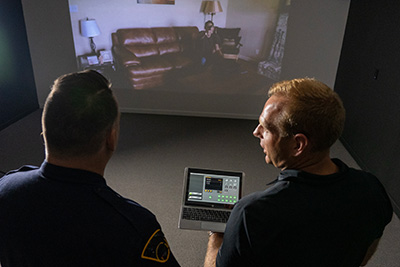
The impact of COVID-19 goes beyond the pandemic itself, and people are suffering from a changing economic landscape, increased violence at home, mental health issues, and food shortages. All of these things combined are exacerbating mental health issues for people all over the world. In fact, nearly one in five adults currently live with a mental illness.
Before COVID-19, approximately 10% of all police calls involved an individual with a mental health issue, and now, these numbers only continue to rise. This statistic sheds light on the idea that police officers are being thrown into situations where they are first responders to mental health crises. And how these officers are trained to handle mental health situations can make all the difference.
Mental Health Training Procedures for Law Enforcement
Classroom instruction is often used to facilitate mental health training for law enforcement officials. In addition, de-escalation training is in place to help officers gain the tools necessary to work towards a positive outcome. Participating in ongoing training aims to help officers learn the power of persuasion to de-escalate potentially dangerous situations.
However, there is no regulated mental health training for officers, first responders, corrections officers, and other safety professionals in most precincts around the United States. As a result, even though these professionals encounter potential suicides, drug abuse, physical abuse, and other dependencies every day on the job, they may not be adequately trained to recognize the signs immediately. Classroom instruction can only take them so far, and they must master the instincts needed to handle real-world scenarios.
A Supplemental Solution to Mental Health and Police Response
The key to proper mental health training for police officers is hands-on practice. By participating in monitored situational awareness training, law enforcement professionals can practice what they learn in a classroom setting through life-like scenarios with unexpected outcomes.
Law enforcement professionals can be better equipped to handle mental health calls with confidence by having both instructional training and hands-on virtual training. They must develop the skills and quick instincts to assess a situation, make meaningful contact, and de-escalate what could become a potentially dangerous outcome.
Where to Find Situational Awareness Training for Mental Health
At EVR, we believe nothing outweighs the benefits of hands-on practice. We are proud to offer law enforcement professionals a safe and realistic environment to engage in life-like simulations that supplement classroom-style learning and build real-world confidence.
We encourage you to contact Engage Virtual Range to learn more about our unique capabilities to support mental health training for police officers and our other virtual training scenarios designed to cater to the needs of law enforcement.